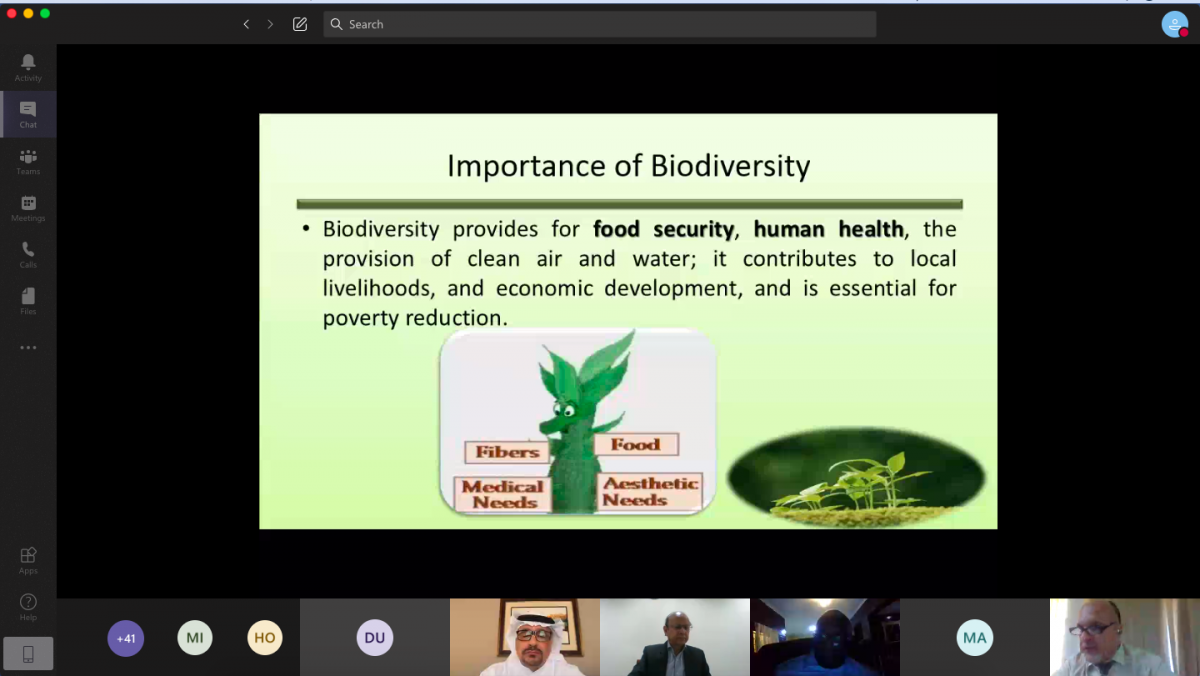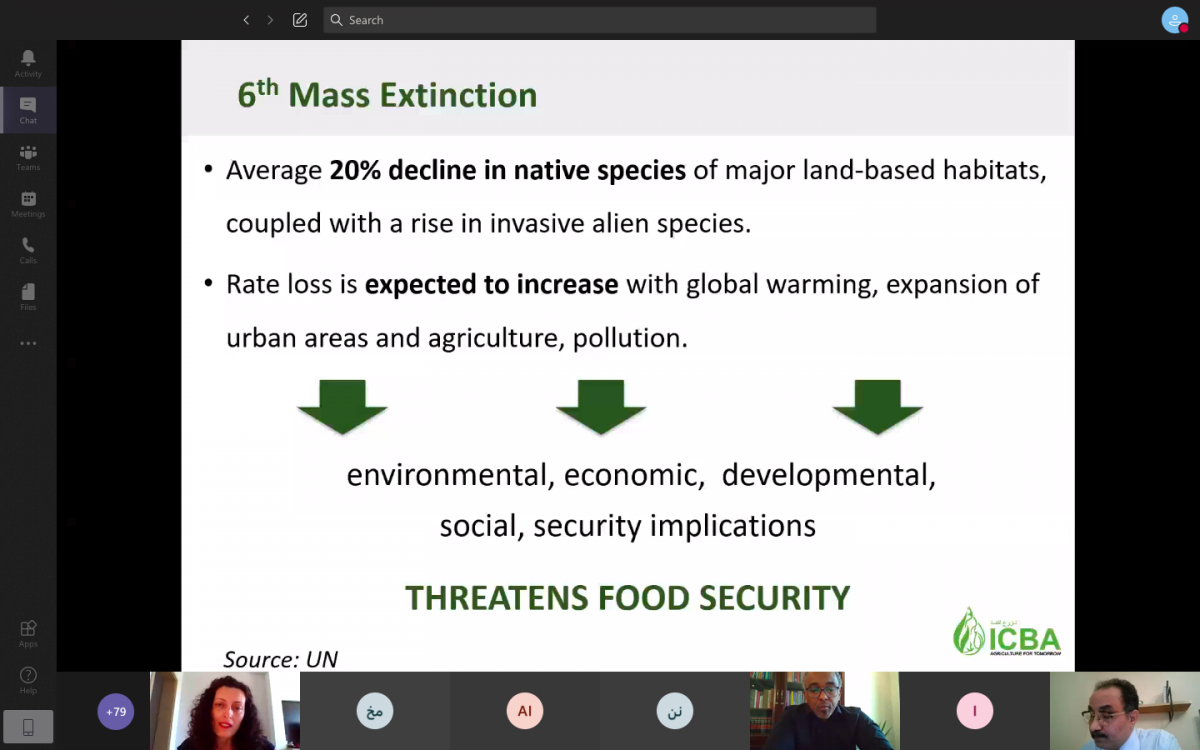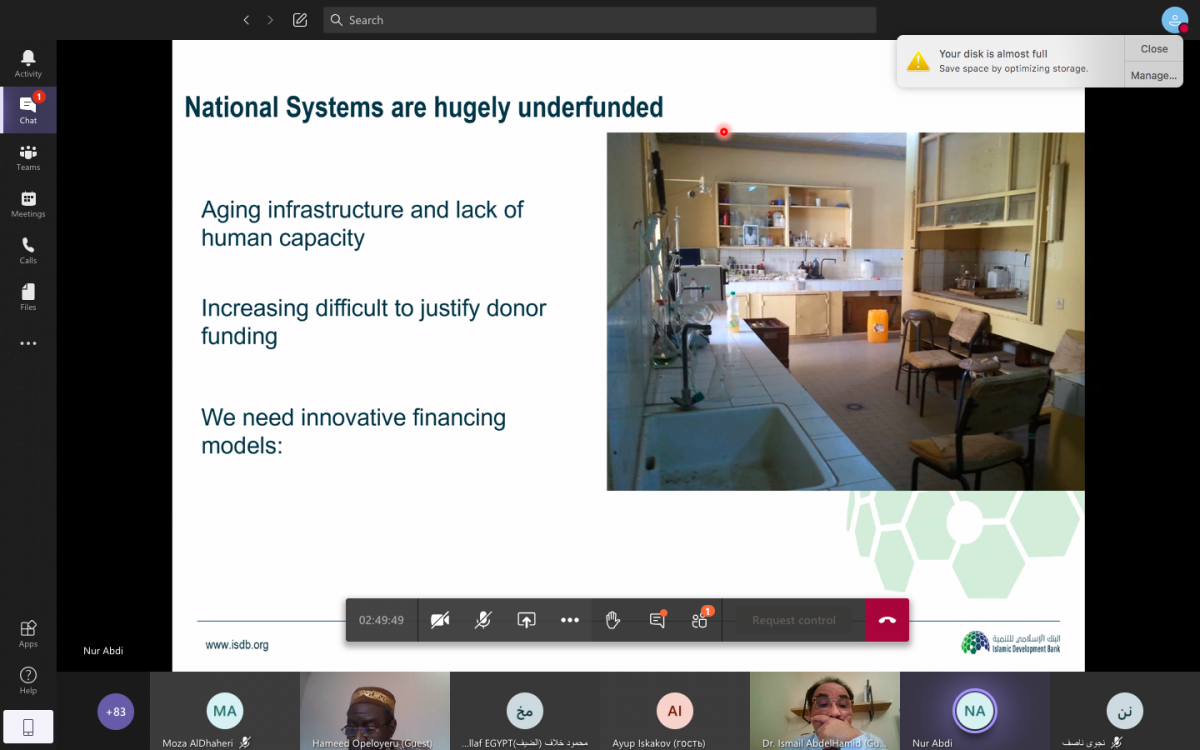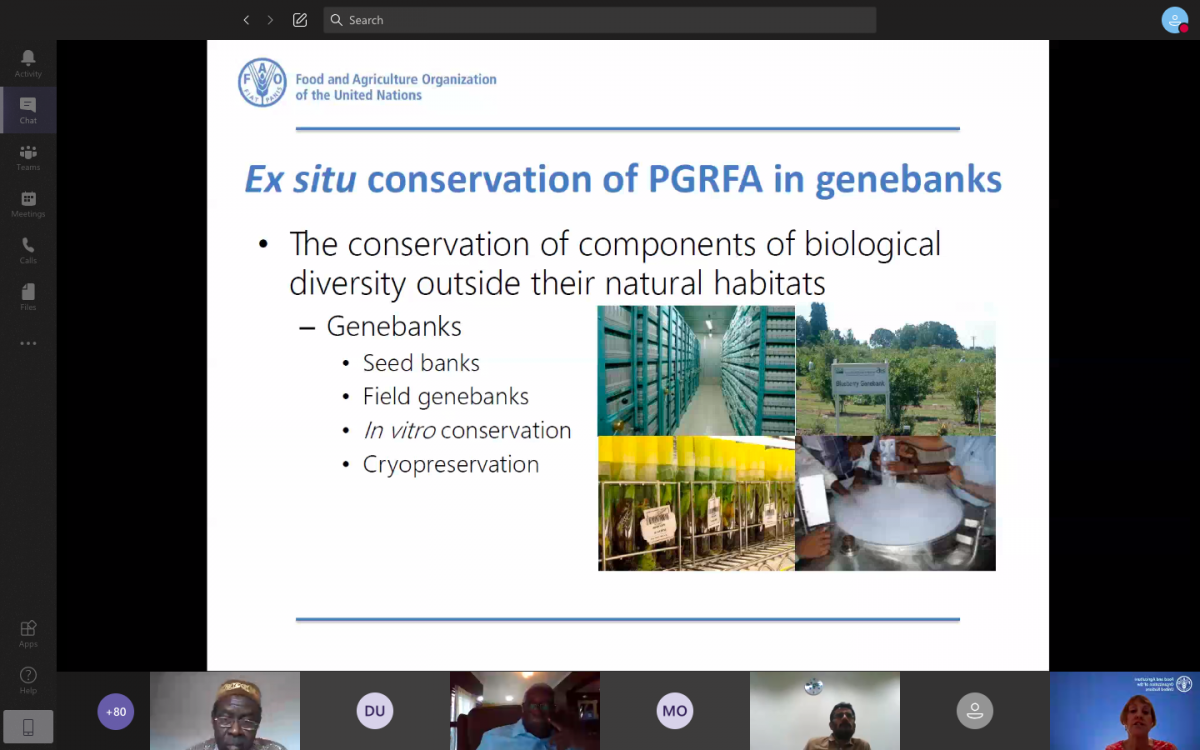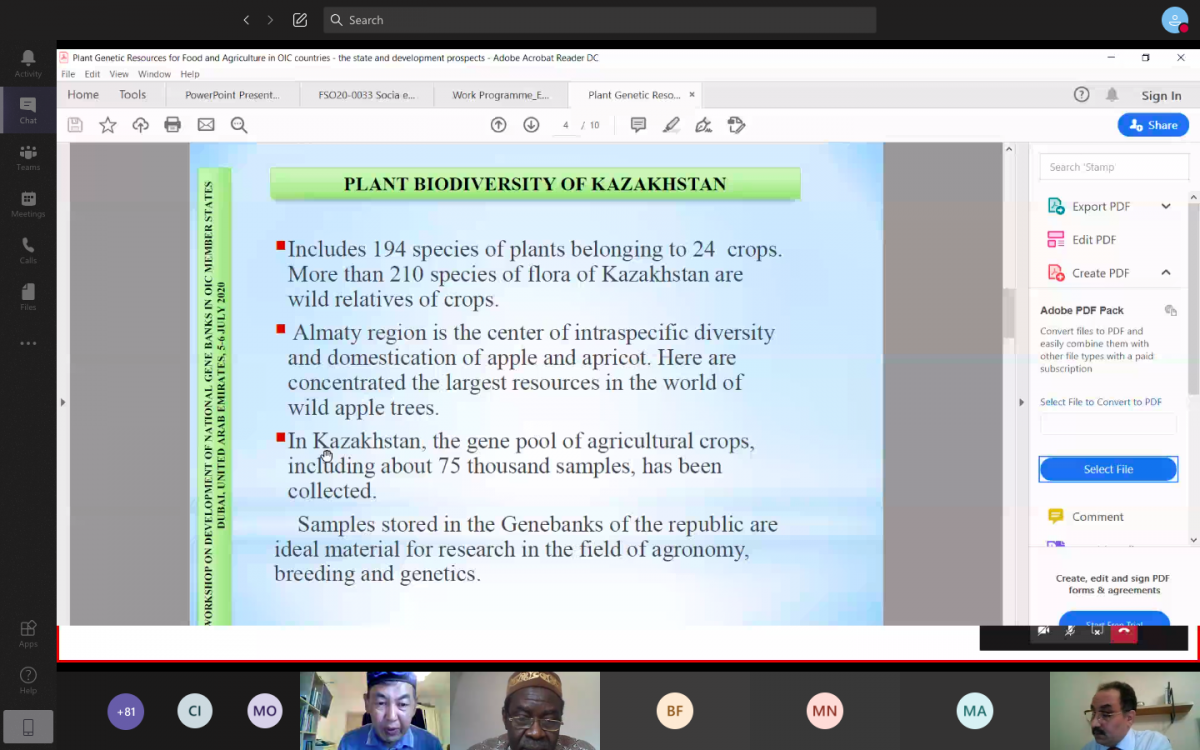The ‘Virtual Workshop on Development of Gene Banks’ continued today following the same format as the first session. Over 95 people took part in the session, reviewing the other three panels.
The Panel IV elaborated on ‘Agricultural Bio-diversity and Resilient Food Systems’ presenting the following panellists: Dr. Reda Rizk PGR & Biodiversity Expert from Arab Organisation for Agricultural Development; Ms. Rosliza Jajuli, Deputy Director at Agrobiodiversity and Environment Research Centre in Malaysia; Dr. Khalid Amri, Director of Khalifa Center for Genetic Engineering and Bio-technology, Head of Department of Biology at UAE University; Mr. Md. Hajiqul Islam, Research Director of FPMU at Ministry of Food in Bangladesh.
A variety of speakers from Panel V addressed ‘The Challenges of Conserving and Sharing Genetic Resources’, the list included Professor G.H Sharubutu, Executive Secretary at the Agricultural Research Council of Nigeria; Dr. Shakeel Ahmed Jatoi, Principal Scientific Officer at the National Agricultural Research Centre in Pakistan; Dr. Bonnie Furman, Agricultural Officer – Plant Genetic Resources (Agrobiodiversity) at FAO; Professor Mbarek Ben Naceur, Director General of National Gene Bank of Tunisia.
Dr. Iskakov Ayup from Kazakhstan, Mr. Nur Abdi, Manager of Agriculture Global Practice Economic & Social Infrastructure in IsDB, Mrs. Seta Tutundjian, Director of Programs at ICBA, Dr. Naser B. Almarri, General Director of Seed Center/Secretary-General of the National Committee for the Management of Plant Genetic Resources of the Kingdom of Saudi Arabia performed in the Panel VI about ‘Developing National Capacities on Bio-Diversity and the Role of Regional Centers of Excellence’.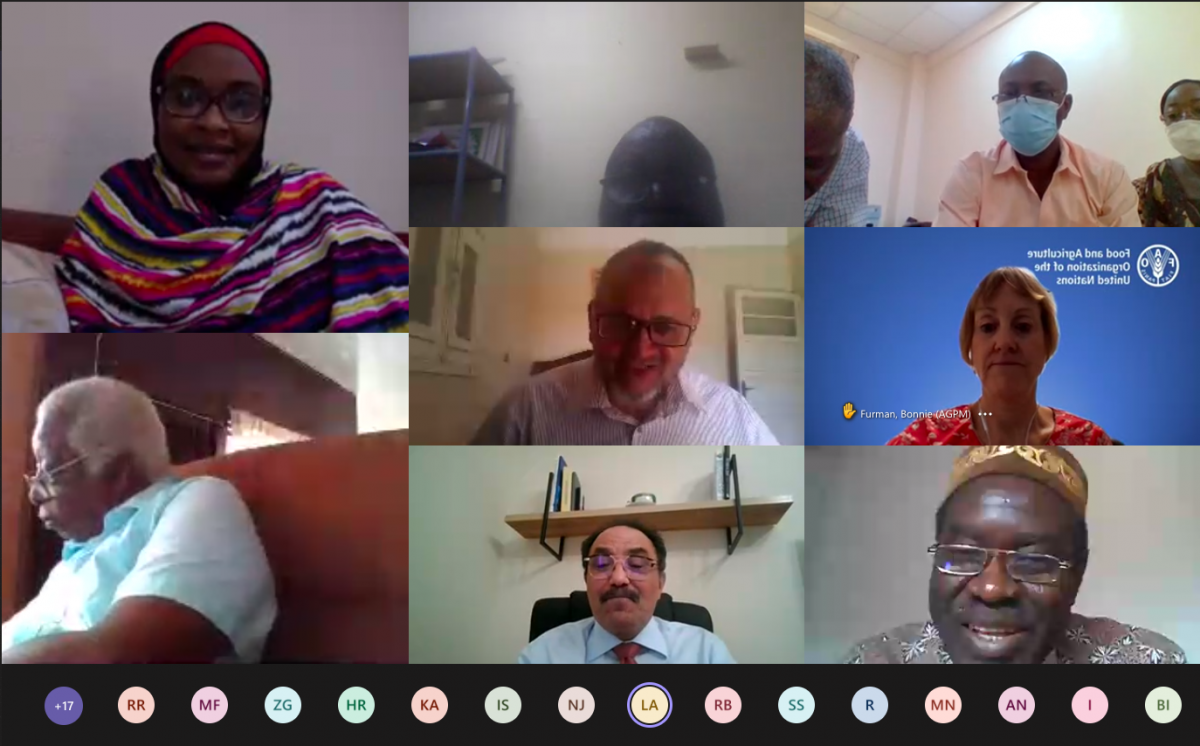
Taking into consideration the damaging effects of the COVID-19 pandemic, climate change and loss of bio-diversity, the Workshop participants emphasised the critical significance of collective action. The stimulation and coordination of national actions for the acquisition, conservation and sustainable utilisation and sharing of plant and animal genetic resources would increase food production and agricultural development in the OIC countries and help fight malnutrition and hunger.
To achieve its goals, the Workshop adopted a multilateral approach to the issues of food security and proposed a number of international initiatives to preserve and facilitate agricultural biodiversity.
In view of the newfound popularity of traditional Islamic finance instruments such as wakf (endowment), the IOFS called for the creation of a Seed Wakf as an endowment fund by net-worth philanthropists, which could support research and development of new stress-tolerant varieties of crops, and construction of physical infrastructure for conservation and exchange.
The Workshop also submitted a proposal to establish a Technical Committee with membership from member states, private sector and national Gene Banks or research institutions. The Committee would oversee the implementation of action plans and related issues, in collaboration with the Executive Board and IOFS Secretariat.
The IOFS praised the role of the key partners of the Workshop, namely the OIC General Secretariat, COMSTECH, IsDB, ICBA, ICARDA and FAO, and called on the more endowed and experienced members to share their expertise and know-how in the Gene Bank field through the instrumentality of sub-regional Centers of Excellence.
The Workshop participants submitted a number of suggestions such as organising training sessions or seminars, mounting awareness campaigns, conducting surveys of biodiversity, and establishing National and International Gene Banks. The achievement of abovementioned goals requires strengthening of international partnership and networking, development of national and human capacities, allocation of more resources and funding to gene banks.
The closing remarks were delivered by H.E. Yerlan Baidaulet, Director-General of IOFS and the Chairman of the Workshop, UAE.
The international ‘Workshop on Development of National Gene Banks’ was organised with an objective to encourage the OIC member states to employ modern scientific methods to build a more robust food value chain and increase the resiliency of food systems and crops.